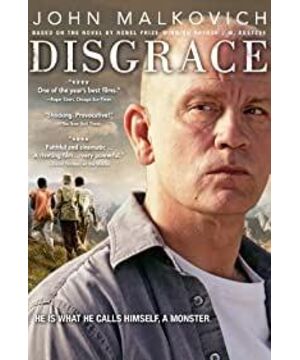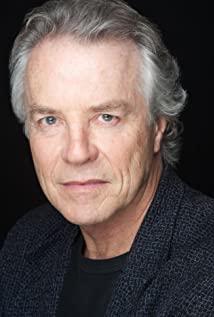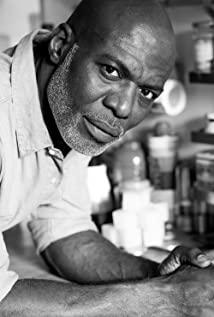Perhaps re-reading the novel will make people more aware of the silence in the movie.
Coetzee's "Shame" is an inexplicable novel. The story itself is very simple. David Lurie, a 52-year-old white South African professor, was forced to leave the university after having an affair with his female student. He hides in his daughter Lucy's farm, only to be robbed. Lucy becomes pregnant after being raped by a black man and decides to marry her black employee. Thus, we can clearly see where the "shame" comes from. "Shame" is the shame that Lurie was expelled from academia, his reputation was ruined, and he had nothing; it was the shame that Lucy was insulted and lost his land.
But is this "shame" the shame that Coetzee wants to tell us? no.
Throughout the novel, the actions of everyone (the characters in the novel) are incomprehensible. Mingming had sex with a female student who was 30 years younger than him and was condemned. Why did Lurie resolutely not admit his fault (I fully admit it, but I do not repent)? Likewise, why was Lucy so badly hurt, yet determined not to leave the country lands? Why would she give birth to a child and marry a black hired hand? In the process of reading, these questions turn the whole novel into a fog, and in the process of solving the puzzle, it is Coetzee who leads us to experience things that we have not experienced step by step, so as to reflect on ourselves.
1.
Coetzee is a very rebellious writer. In his indifferent and concise narrative, he hides a forbearance and fierce self. As the award speech of the Nobel Prize for Literature said, he often creates a "disguised" self in his works. Professor Lurie was his "disguise", and so was Lucy. Through a series of unusual behaviors of the characters, he forces readers to understand and experience something they have never experienced (Ma Yueran), and conveys the inner cry.
The first sentence of the novel is about Lurie. "He felt that for a 52-year-old man who was married and divorced, the problem of sexual needs was solved quite well." However, it is from Lurie's sexual needs that the story solves the problem. Start.
A 52-year-old university professor who studies Byron, his life is decently normal enough to ignore and hide his sexual needs. But Coetzee didn't ignore it. Maybe because everyone avoided it, he put the contradiction in the first sentence. Sexual needs eventually brought scandal to Lurie, intensifying the first contradiction—are sex-related scandals really shameful?
Facing the accusations of the whole society, the seemingly moderate Lurie broke out into an unimaginable rebellion. He admitted the accusations against him, but he did not admit the shameful, and he did not repent. He would rather lose his teaching job at the university than regret it. He said: "It was a Puritan era, private life became a public matter lust should be respectable, they want to watch, to see a TV show, I would never buy it.."
Then Coetzee to the countryside, Come to my daughter Lucy. Compared with Lurie's rebellion, Lucy looked calm, but she went further—she gave up city life completely and was willing to farm dogs in the countryside.
Lurie was dissatisfied with this, he felt it was his own shame (he began to feel ashamed—the daughter of a college professor was farming in the country), and he tried to break into Lucy's life, change her way of life, bring She went back to the city. In their dialogue, there is always a confrontation, which is also the confrontation between the city and the countryside, the noble and the poor. At this time, Lucy knew very well what she wanted. She was another invisible Coetzee. She used her silence and actions to point out Lurie's vanity and arrogance.
2. The
real conflict finally broke out when Lucy was raped. Three black men broke into her home, raped her, and burned Lurie. It's a real shame for Lurie that they (blacks, poor hired hands) hurt his daughter. However, what made him more puzzling and sad was that Lucy did not report the crime, did not tell him what really happened. The unthinkable continues down the road, Lucy forgives the black man who hurt her, she becomes pregnant, and intends to have a baby. Lurie was horrified to hear the news, and at this moment, his arrogance (the morals and values of an urban white man) suddenly collapsed: "He stood against the wall outside the kitchen, his hands over his face, and for a while, The position sobbed, and finally cried out loud."
Lucy, however, didn't care about black people, poverty, or class differences. For Lucy, the real shame was leaving the land, and the shame was the hatred they carried during the rape—“There was so much personal anger back then, that was what shocked me the most. Others It's all to be expected. But why do they hate me so much? I haven't even seen them." This hatred is the truth of Lucy's experience. Where does hatred come from and why does it exist. The occurrence and origin of this hatred is a shame to her.
Lurie never understood this. He is against them in his heart. Like many white people, he has an unequal vision. He also hates them because they (black people) are eating Lucy's land and hurting her step by step. And Lucy wanted to stay, she didn't want to hate, she wanted to accept, because they were the people who lived with her in this land—they were people. This is the future of this land. The land will eventually be restored to give people true equality. Petrus, the black who finally married Lucy, said to Lurie, "Lucy is different from you. She is forward-looking, she is future-oriented." No one can occupy the land forever, and the future belongs to this land. people who work.
3. The
novel is written here, we can certainly say that it reflects the complex social contradictions and racial conflicts in South Africa. On the other hand, we can see that this kind of hatred and misunderstanding between different classes, different races or people They can be found everywhere, in South Africa or anywhere in the world. Perhaps Coetzee himself does not care about politics or racial conflicts, because in real life he never participates in any political activities, does not sign or march, and he is more concerned with the situation of people. Watch out for the stigma in these hatreds. He strips away the vanity and arrogance of man, and faces nature and the future.
When Lucy was left with nothing, Coetzee wrote: "What a shame," he said. "Such high spirits end up at this point."
"Yes, I agree. It's humiliating, but maybe it's a new beginning. Maybe this is what I should learn to accept. From the beginning. From the real Start with nothing, no way, no weapons, no property, no rights, no dignity."
"Like a dog."
"Yes, like a dog."
Like a dog, is a worldly swearing that symbolizes lowliness and enslavement. But for Lurie, in the end, he finally discovered that humans and dogs are animals of nature, and that he can see them as equals. Being like a dog means that he will completely abandon the arrogance and self-righteousness of human existence.
4.
In the process of reading "Shame", what is confusing is not only Coetzee's different understanding of "shame", but also a very crucial factor: "You are not there".
There are two trial scenes in the novel. One is the review committee's review of Lurie, and the other is Lurie's questioning of Lucy after the rape. People want to know the truth, they want to know what happened. Whether it was Lurie or Lucy, they chose silence, they admitted it, but they were reluctant to say it. However, everyone has their own standards of value from which to infer others. Even if Lurie was questioned by others, he couldn't restrain himself from using his assumptions to ask Lucy/
Lucy had nowhere to hide, and finally told Lurie: "The reason is: what happened to me is completely personal privacy. In another era, Elsewhere, people might think it's a public thing. But right now, here, it's not. It's my private business, my own business."
"What is this place?"
"This is South Africa. "
Yes, you can't understand how I feel when you're not in South Africa, you can't understand the hatred and conflict between people, and you can't understand the shock and shame I feel. And any speculation by the public will eventually flow into absurdity and take for granted, running counter to that. What happened to Lurie has made clear the real-world game of tracking down the truth. "They surrounded him, like a group of hunters, holding on to a monster they had never seen before, and they didn't know what to do with it."
Coetzee made his own attitude completely clear, he didn't want to command others, and he didn't want to say too much (this is Lucy's silence and the life Lurie finally chose), he didn't believe in the name of the collective, he valued the individual experience. Without being there, you can never speak for him and know the truth. Even trying to explain can be a joke. In the novel, Coetzee arranged for Professor Lunet to go to the female student's house, trying to explain his feelings at the time, about love, but all in vain. In this regard, Coetzee is quite pessimistic.
5
Sinologist Ma Yueran recounts an example of how in Coetzee's "Iron Age" he created a "disguised" character called Mrs. Cooran who saw the police shoot and kill her black maid's son. , but she did not participate in public protests, she said: ".. I can not come to condemn them with other people, then I have to find my own words, from my own inner sound, or not true of the"
he just believes true, library Che is such a person. He is pessimistic, he is far from the city, in nature, loves animals, and lives a simple life. Some say he is fleeing, but it can also be said that he is a true rebel against the arrogance, numbness, and ignorance in humanity that creates hatred and isolation. He is like his characters, "At critical moments, Coetzee's characters are standing behind themselves, motionless, as if there is no way to participate in their own actions. But this negative state is not only a person's Character creation, it is also one's last resistance to oppression, resistance in a passive state of non-participation." (Award from the Swedish Academy)
View more about Disgrace reviews











